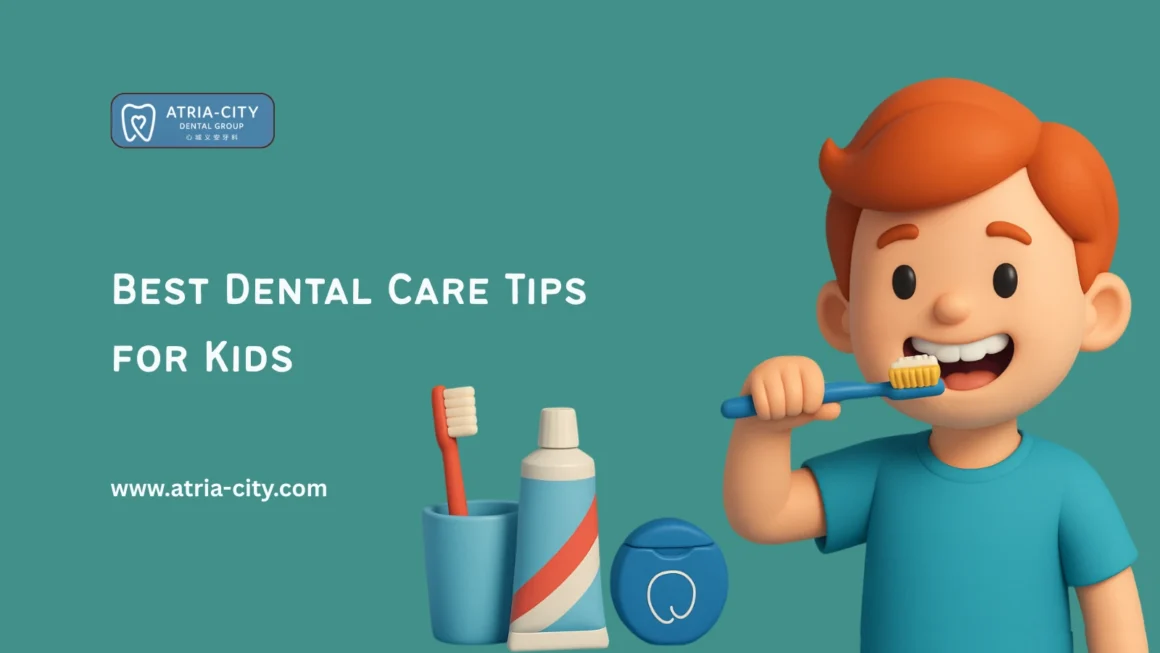Helping kids develop good dental habits early in life is one of the best things you can do for their long-term health. But getting them excited about brushing, flossing, or visiting the dentist? That’s not always easy. Thankfully, with a few smart strategies and a bit of creativity, dental care can actually become something they enjoy — or at least don’t resist. Here’s how to make dental hygiene fun, stress-free, and a regular part of your child’s routine.
Why Children’s Dental Health Matters
Healthy teeth are essential not only for chewing and speaking properly, but also for building confidence. Early cavities, gum disease, or tooth loss can affect everything from nutrition to speech development and even sleep quality. That’s why regular dental checkup appointments and at-home oral care are so important — even for baby teeth, which eventually fall out.
1. Start Early with the Basics
The earlier kids are introduced to oral care, the better. You can begin by gently wiping your baby’s gums with a soft cloth even before teeth appear. As soon as that first tooth comes in, start brushing with a small, soft-bristled toothbrush and a tiny smear of fluoride toothpaste.
When kids see oral care as a normal part of life from the beginning, they’re less likely to resist it later on.
2. Make Brushing a Fun Ritual
Turning brushing and flossing into a game or part of a fun bedtime routine can change the way kids think about oral hygiene. Try:
- Letting them pick their own toothbrush with favorite colors or characters
- Playing a two-minute song while they brush
- Using sticker charts or rewards to track progress
These small changes can make a big difference in building consistency and motivation.
3. Schedule Regular Dental Visits
Getting your child used to visiting a dentist near me from an early age helps them feel more comfortable and reduces fear. Most dentists recommend scheduling the first visit by age one, or within six months of the first tooth erupting.
Look for clinics that specialize in paediatric dentistry in Singapore to ensure a kid-friendly environment. These clinics are well-equipped to handle young patients with a gentle, supportive approach that makes all the difference.
4. Be Mindful of Diet
What your child eats plays a huge role in their dental health. Limit sugary snacks and drinks, especially sticky or chewy candies that can cling to the teeth. Encourage a balanced diet full of fruits, vegetables, dairy, and water.
Drinks like juice should be given in moderation, and it’s best to avoid giving them right before bedtime to prevent sugar from sitting on the teeth overnight.
5. Know When to Get Extra Help
Some children may need a little more support when it comes to dental care. If your child has anxiety, special needs, or extensive treatment needs, you might want to explore options like dental treatment under General Anaesthesia. This approach allows dental procedures to be done safely and comfortably while the child sleeps, preventing trauma or stress.
It’s typically reserved for complex cases but can be a very helpful solution in the right circumstances.
6. Lead by Example
Kids are more likely to take dental care seriously if they see their parents doing the same. Brush and floss together as a family, and talk positively about dental visits. Modeling good habits helps reinforce them and removes any fear your child may associate with oral care.
7. Choose the Right Dental Partner
A child’s experience with their dentist can shape their attitude toward dental health for life. Choosing a clinic that focuses on paediatric dental in Singapore ensures that your child gets expert care in a warm, age-appropriate setting.
Many of these dental professionals use techniques that are tailored to kids’ needs, making visits smoother and more educational.
FAQs
1. When should my child have their first dental checkup?
It’s recommended to schedule your child’s first dental checkup by their first birthday or within six months of the first tooth appearing. Early visits help detect any potential issues and get your child comfortable with the dentist from the start.
2. What is the difference between general dentistry and paediatric dentistry?
Paediatric dentistry focuses specifically on the oral health of children from infancy through the teenage years. Paediatric dentists are trained to handle the unique dental needs and behavioral aspects of children in a kid-friendly setting.
3. What if my child is afraid of the dentist or needs extensive dental work?
Behavioural management techniques can be done to slowly get children to relax and cooperate. In cases of severe anxiety or complex procedures, dental treatment under General Anaesthesia may be recommended. This allows all necessary treatments to be completed safely while the child is asleep and unaware of the procedure.
4. How can I help my child enjoy brushing their teeth?
Make brushing fun by using a colorful toothbrush, playing a favorite two-minute song, or using apps and games. Brushing together as a family and praising their effort can also make it more enjoyable.
5. How do I find a good paediatric dentist near me?
You can search for a trusted dentist near me who specializes in paediatric dental care. Look for clinics with child-friendly environments, experienced staff, and positive reviews from other parents.
Final Thoughts
Good dental health starts young, and with the right tools and approach, it can become something kids don’t just tolerate — but actually enjoy. Whether it’s picking a fun toothbrush, making brushing a game, or ensuring you’re visiting a supportive paediatric dentistry Singapore provider, these small steps build a strong foundation for lifelong oral health.
The key is consistency, encouragement, and keeping things light and positive. With time, brushing, flossing, and dental visits can become second nature — no battles required.
Want to ensure your child’s smile stays healthy?
Start with a dental checkup, and explore gentle care options through specialized paediatric dental providers nearby.


Leave a Reply